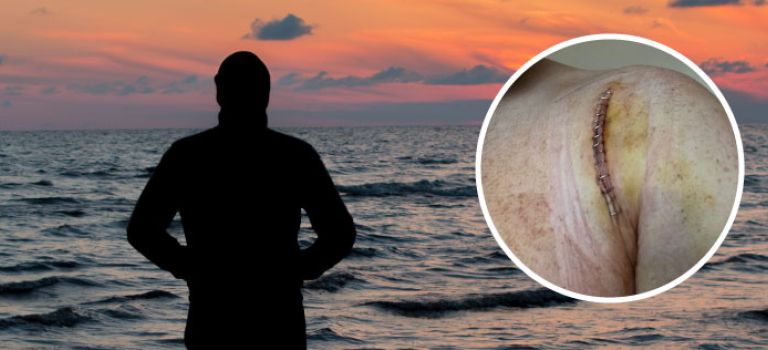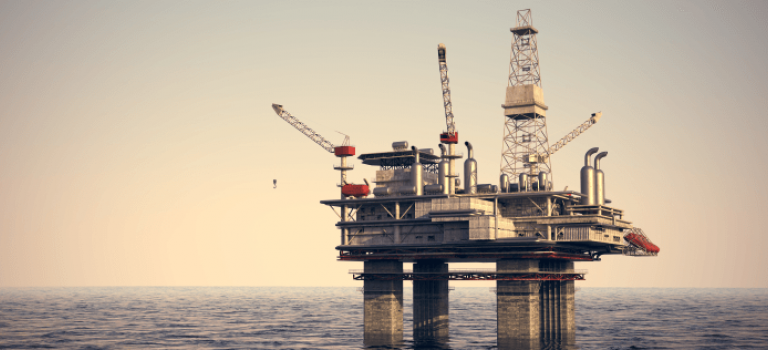Shipping injury and accident claims
Maritime accidents are thankfully uncommon but when they do happen they can sometimes be serious.
The very nature of an accident at sea can be more distressing for those who are injured, especially when they are frequently far from help.
We do not say this lightly – but investigating shipping accidents is extremely complicated.
This is because there are often multiple factors involved that can complicate things, such as:
- The type of ship involved
- Whether the accident happened at sea, in a dock, harbour or even in a dry dock
- Who is the responsible party – it could be the injured person’s employer, the ship owners, or the ship managers.
- Multi-national staff members
- Self-employed workers or contractors
- International waters and the jurisdiction of destination ports in other countries
- The differing legal rights you may have against naval or merchant shipping vessels
- And even the impact of the weather
There are even different rules that apply to cruise ship accidents depending on if you were injured as a passenger or a crew member.
So to keep things as simple as possible this advice page is aimed to help people who work on merchant shipping vessels (like cargo ships or research vessels).
For advice on offshore accidents in the oil and gas sector, fishing accident claims or incidents on public transport like ferries then please check out those specialist pages. And if you were an injured passenger, such as during a holiday on a cruise ship, then visit our accidents on ships page.
But whatever the circumstances of your maritime accident the core principle of your legal rights remains the same – which is anyone who is injured through no fault of their own is entitled to seek compensation.
How does Digby Brown help with shipping accident claims?
Our Foreign & Travel team is led by Partner Mark Gibson and has decades of experience in overcoming even the most complicated legal barriers to ensure people secure fair damages in a shipping injury accident claim.
We work diligently behind the scenes to recover all the relevant information that’s needed to help build a strong shipping accident injury claim.
This will include:
- Gathering witness statements
- Reviewing medical records with analysis from independent experts
- Collating report findings from bodies like Maritime Accident Investigations Branch (MAIB) and Health & Safety Executive
- Obtaining employment records and other relevant work documents like risk assessments
Our solicitors do these investigations fully and on a no win, no fee basis.
We also have a network of legal peers throughout the globe who can be relied on to provide legal assistance to your case in the event something needs to happen in another country. Our membership of The Pan European Organisation of Personal Injury Lawyers (PEOPIL) and the American Association for Justice (AAJ) gives us access to a global network of specialist personal injury lawyers.
For example, if you are Scottish and suffered an injury on a ship in French waters but the ship is registered to a company based in the United States, then our American peers can help investigate the owners of the ship.
Merchant shipping and fishing vessels are subject to a different legal regime of health and safety regulations than land-based employers. It may also be disputed which country’s laws the ship operators are subject to. Investigating this properly can have a big impact on the success and value of your claim.
Although it may be possible to pursue certain foreign accident claims in the Scottish courts, the time limit for bringing a claim may be governed by the law of the place where the accident happened.
The foreign time limit may be shorter than the Scottish time limit of three years.
In addition, the damages which can be recovered may be regulated by the law of that country rather than by Scottish law. It is not always clear which law should apply and we are experts at putting the case for applying the law most advantageous to you.
It is important that you take specialist advice as soon as possible.
No win, no fee personal injury solicitors
The expression “No win, no fee” is often used in personal injury cases. It is used as a way of funding a compensation claim where the accident victim does not have the means to pay for the costs involved as the case progresses.
A number of solicitors are prepared to handle personal injury cases on a “No Win – No Fee” basis but very few are able to offer their clients complete protection if the case is unsuccessful.
In that event, the client could end up being liable for many thousands of pounds in legal expenses or the case won't be fully investigated and therefore likely to under-settle.
Compensate 'no win, no fee' funding
Digby Brown has its own funding company, Compensate, which provides the funding to allow the case to be fully investigated, employ the best experts surrounding the circumstances of the accident and/or injuries sustained and where and if necessary go to court.
If for whatever reason the case is unsuccessful, Compensate pays all your legal expenses and those of your opponent – you pay nothing.
On average our clients receive over 3 times the pre-litigation offer
Because of Compensate funding Digby Brown's success rate is extremely high and on average our clients receive three times the pre-litigation offer.
In the event the case is successful, a small percentage of your damages will be deducted with VAT to pay for this service. The percentage which Compensate will charge depends on the degree of risk involved. We believe that this is the fairest method of giving clients access to justice whilst ensuring their cases are fully investigated, prepared and funded.
Don’t take our word for it, just read many of the court decisions and case studies on our website.
Beware of compensation offers which may be too good
We know you will have seen many adverts offering 100% compensation or telling you that you will not lose any of your compensation, however we believe there are a number of problems with companies that do this.
- How do they make their money if they don’t charge you anything?
- If they aren’t taking any money from you, the client, what incentive do they have to ensure you receive the right level of compensation, appropriate to the injuries you have sustained?
- Fully preparing a case, finding out exactly what happened and what the consequences of your injuries may mean in the long term, is expensive, how do they do this properly?
- If they aren’t fully preparing these cases will they just accept the first offer they are given on your behalf by the Insurance company?
- It makes simple business sense, the less work they do the higher their profit margin is - they simply have no incentive to work harder on your behalf.
- These adverts in the main are from English firms on national television which operates in a different way and therefore wouldn’t apply to a Scottish person.
We know from the many client cases we mandate from other firms of solicitors (in the main at the request of the client who is extremely unsatisfied with the service received for the other firm) that many shortcuts are taken in preparation and that the first offer received is being recommended for acceptance, regardless of the value.
Getting something for nothing is usually the first sign of poor service.
Correct level of compensation with Digby Brown
Our experience and statistics show time and time again we will achieve the correct level of compensation which will be substantially more than the insurer is initially prepared to offer.
Even after we have deducted our percentage as a success fee you will gain considerably more than you would have achieved using a 100% compensation model.
Contact Digby Brown's personal injury solicitors
We have offices across Scotland in Glasgow, Edinburgh, Dundee, Kirkcaldy, Inverness, Aberdeen and Ayr.
For further information about no win, no fee, or anything else, call us on 0333 200 5925 or fill in our enquiry form below and someone will get back in touch with you.
What can I claim for in a shipping injury claim?
All personal injury claims are about recovering the financial losses you suffered after your injury.
This can include things like:
Loss of earnings - If your injury stops you from working (either for a certain period of time or, in some cases, permanently) then we will seek to recover your lost wages. If you were off work for a long period of time then we even consider the impact this had on your pension.
Cost of medical treatment – this may be especially important if you incurred expensive medical costs in a foreign country.
Other expenses – if your injury meant you incurred other costs like hotels, flights or even new clothes or food then we can recover these costs. So it is always good to keep receipts as proof of this.
These are just a few basic examples that will relate to most injured people but for those who sadly suffer more serious injuries, we can make sure your compensation covers the cost of extended medical care or treatment and even home adaptations.
Successful shipping claims – how we overcome common issues
Properly understanding your role on a vessel is important to us to investigate your case. We regularly act for people injured in Scottish waters, or working onboard vessels in the harbour or dry dock, whether they are seagoing crew, refitting or maintenance contractors, or offshore industry workers. Equally, we have successfully recovered compensation in Scotland even where the accident has occurred elsewhere in the world and where vessels, as is frequently the case, are registered in countries where the ship operators try to hide from their responsibilities.
Getting a detailed understanding of who is responsible for your work and your accident is critical, because shipping operators often try to hide behind complex company structures and registrations in tax havens to dispute jurisdiction and liability.
Equally, the type and location of the vessel can have a big impact on what their health and safety responsibilities are – we are experts at advising on that.
If stormy weather was a factor in your accident then sometimes ship managers or owners may blame the weather and insist there was nothing they could do to prevent your injury. But this is simply not the case. While working at sea can be a hazardous profession, there are risk assessments, PPE and safe working practices designed to keep people safe regardless. Grippy to protect against slippery flooring. Lifejackets to protect from drowning. Even right down to the way people store their food to ensure they do not suffer food poisoning during their time at sea.
Accurate monitoring systems even help vessel management to avoid dangerous weather systems.
There is nothing that is more important than the safety of a ship’s crew and your employers and ship owner’s know this too.
0333 200 5926
Monday to Friday: 8am - 7pm
Saturday and Sunday: 12pm - 4pm
(Please note, local rate, even from mobile)
Email enquiry form
Complete our enquiry form and we will strive to reply within 24 hours


